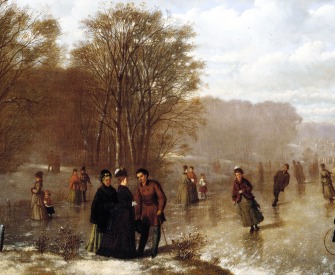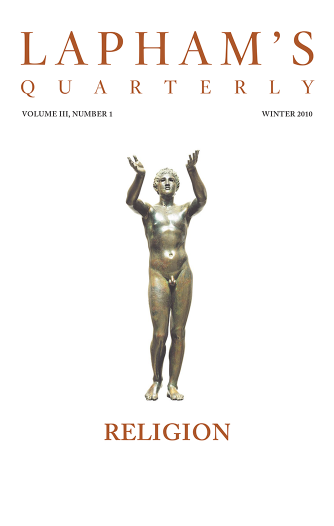Money is mourned with deeper sorrow than friends or kindred.
—Juvenal, 128The Work of a Gentleman
Barry Lyndon and the occupational hazards of professional players.
What a delightful life did we now lead! I knew I was born a gentleman from the kindly way in which I took to the business, as business it certainly is. For though it seems all pleasure, yet I assure any low-bred persons who may chance to read this that we, their betters, have to work as well as they: though I did not rise until noon, yet had I not been up at play until long past midnight? Many a time have we come home to bed as the troops were marching out to early parade; and oh! it did my heart good to hear the bugles blowing the reveillé before daybreak, or to see the regiments marching out to exercise, and think that I was no longer bound to that disgusting discipline, but restored to my natural station.
I came into it at once, and as if I had never done anything else all my life. I had a gentleman to wait upon me, a French friseur to dress my hair of a morning; I knew the taste of chocolate as by intuition almost and could distinguish between the right Spanish and the French before I had been a week in my new position; I had rings on all my fingers, watches in both my fobs, canes, trinkets, and snuffboxes of all sorts, and each outvying the other in elegance. I had the finest natural taste for lace and china of any man I ever knew; I could judge a horse as well as any Jew dealer in Germany; in shooting and athletic exercises, I was unrivalled; I could not spell, but I could speak German and French cleverly. I had at the least twelve suits of clothes: three richly embroidered with gold, two laced with silver, a garnet-coloured velvet pelisse lined with sable, one of French grey, silver-laced, and lined with chinchilla. I had damask morning robes. I took lessons on the guitar and sang French catches exquisitely. Where, in fact, was there a more accomplished gentleman than Redmond de Balibari?
All the luxuries becoming my station could not, of course, be purchased without credit and money; to procure which—as our patrimony had been wasted by our ancestors, and we were above the vulgarity and slow returns and doubtful chances of trade—my uncle kept a faro bank. We were in partnership with a Florentine well-known in all the Courts of Europe, the Count Alessandro Pippi, as skilful a player as ever was seen; but he turned out a sad knave latterly, and I have discovered that his countship was a mere imposture. My uncle was maimed, as I have said; Pippi, like all impostors, was a coward; it was my unrivalled skill with the sword, and readiness to use it, that maintained the reputation of the firm, so to speak, and silenced many a timid gambler who might have hesitated to pay his losings. We always played on parole with anybody: any person, that is, of honor and noble lineage. We never pressed for our winnings or declined to receive promissory notes in lieu of gold. But woe to the man who did not pay when the note became due! Redmond de Balibari was sure to wait upon him with his bill, and I promise you there were very few bad debts: on the contrary, gentlemen were grateful to us for our forbearance, and our character for honor stood unimpeached. In later times, a vulgar national prejudice has chosen to cast a slur upon the character of men of honor engaged in the profession of play, but I speak of the good old days in Europe, before the cowardice of the French aristocracy (in the shameful Revolution, which served them right) brought discredit and ruin upon our order. They cry fie now upon men engaged in play, but I should like to know how much more honorable their modes of livelihood are than ours. The broker of the Exchange who bulls and bears, and buys and sells, and dabbles with lying loans, and trades on state secrets, what is he but a gamester? The merchant who deals in teas and tallow, is he any better? His bales of dirty indigo are his dice, his cards come up every year instead of every ten minutes, and the sea is his green table. You call the profession of the law an honorable one, where a man will lie for any bidder; lie down poverty for the sake of a fee from wealth, lie down right because wrong is in his brief. You call a doctor an honorable man, a swindling quack, who does not believe in the nostrums which he prescribes, and takes your guinea for whispering in your ear that it is a fine morning; and yet, forsooth, a gallant man who sits him down before the baize and challenges all comers, his money against theirs, his fortune against theirs, is proscribed by your modern moral world. It is a conspiracy of the middle classes against gentlemen: it is only the shopkeeper cant which is to go down nowadays. I say that play was an institution of chivalry: it has been wrecked, along with other privileges of men of birth. When Seingalt engaged a man for six-and-thirty hours without leaving the table, do you think he showed no courage? How have we had the best blood and the brightest eyes, too, of Europe throbbing round the table, as I and my uncle have held the cards and the bank against some terrible player who was matching some thousands out of his millions against our all which was there on the baize! When we engaged that daring Alexis Kossloffsky and won seven thousand louis in a single coup, had we lost, we should have been beggars the next day; when he lost, he was only a village and a few hundred serfs in pawn the worse. When, at Toeplitz, the Duke of Courland brought fourteen lacqueys, each with four bags of florins, and challenged our bank to play against the sealed bags, what did we ask? “Sir,” said we, “we have but eighty thousand florins in bank, or two hundred thousand at three months. If your Highness’ bags do not contain more than eighty thousand, we will meet you.” And we did, and after eleven hours’ play, in which our bank was at one time reduced to two hundred and three ducats, we won seventeen thousand florins of him. Is this not something like boldness? Does this profession not require skill and perseverance and bravery? Four crowned heads looked on at the game and an imperial princess, when I turned up the ace of hearts and made Paroli, burst into tears. No man on the European continent held a higher position than Redmond Barry then, and when the Duke of Courland lost, he was pleased to say that we had won nobly; and so we had, and spent nobly what we won.
At this period, my uncle, who attended mass every day regularly, always put ten florins into the box. We used to give away the broken meat from our suppers and dinners to scores of beggars who blessed us. Every man who held my horse or cleaned my boots got a ducat for his pains. I was, I may say, the author of our common good fortune by putting boldness into our play. Pippi was a faint-hearted fellow who was always cowardly when he began to win. My uncle (I speak with great respect of him) was too much of a devotee and too much of a martinet at play ever to win greatly. His moral courage was unquestionable, but his daring was not sufficient. Both of these, my seniors, very soon acknowledged me to be their chief, and hence the style of splendour I have described.
I have mentioned H.I.H. the Princess Frederica Amelia, who was affected by my success and shall always think with gratitude of the protection with which that exalted lady honored me. She was passionately fond of play, as indeed were the ladies of almost all the Courts in Europe in those days, and hence would often arise no small trouble to us; for the truth must be told, that ladies love to play, certainly, but not to pay. The point of honor is not understood by the charming sex, and it was with the greatest difficulty, in our peregrinations to the various Courts of Northern Europe, that we could keep them from the table, could get their money if they lost, or, if they paid, prevent them from using the most furious and extraordinary means of revenge. In those great days of our fortune, I calculate that we lost no less than fourteen thousand louis by such failures of payment. A princess of a ducal house gave us paste instead of diamonds, which she had solemnly pledged to us; another organised a robbery of the crown jewels and would have charged the theft upon us but for Pippi’s caution, who had kept back a note of hand “her High Transparency” gave us, and sent it to his ambassador; by which precaution I do believe our necks were saved. A third lady of high (but not princely) rank, after I had won a considerable sum in diamonds and pearls from her, sent her lover with a band of cutthroats to waylay me; and it was only by extraordinary courage, skill, and good luck, that I escaped from these villains, wounded myself, but leaving the chief aggressor dead on the ground: my sword entered his eye and broke there, and the villains who were with him fled, seeing their chief fall. They might have finished me else, for I had no weapon of defence.
Thus it will be seen that our life, for all its splendour, was one of extreme danger and difficulty, requiring high talents and courage for success; and often, when we were in a full vein of success, we were suddenly driven from our ground on account of some freak of a reigning prince, some intrigue of a disappointed mistress, or some quarrel with the police minister. If the latter personage were not bribed or won over, nothing was more common than for us to receive a sudden order of departure; and so, perforce, we lived a wandering and desultory life.

William Makepeace Thackeray
From The Luck of Barry Lyndon. In 1832 Thackeray inherited his father’s £20,000 fortune, which allowed him to briefly dabble in law and painting before he lost all his money in games of chance and stock speculation. He then embarked on an industrious career as a professional journalist. The serial publication of Vanity Fair in 1847 and 1848 won him the reward of both a literary and financial success.




